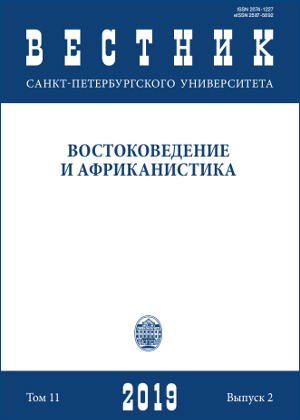The Impact of Global Economic Integration on Africa in the 21st Century
DOI:
https://doi.org/10.21638/spbu13.2019.207Abstract
Has global economic integration in the 21 st century raised the hope of Africa beyond the traditional approach of providing aid to help her end poverty? Are there remarkable differences in the approaches of some regional economic blocs like BRICS, Asia-Pacific Economic Cooperation (APEC) and multilateral groups such as IMF, World Bank etc. towards Africa? What has been and should be the basis of bilateral or even, multilateral development relationships between these groups and Africa? To answer the questions, the study explores the philosophy behind the donor-recipient and equal partners’ approaches to development. It juxtaposes the depredatory effects of the socio-political and economic conditionality that the West has inflicted on Africa (ranging from integrated rural development in the 1970s, to policy reform in the 1980s, to governance in the 1990s, and respect for human rights in the 2000 (especially the gay rights movement and so on) and alternative models. The paper observes that the burden of foreign aid, loan agreement, economic and technical cooperation agreement, debt sustainability, etc. have deepened Africa’s vulnerability rather than brighten its prospects in a global market. By hinging its argument on the assumption that any global economic integration that imposes political and economic conditionality in exchange for aid is anti-development, this paper further submits that African countries should be free to negotiate their own pathway out of poverty as equal partners in development. Only by comparing and exchanging views, rather than tutorials, the more useful engagement between Africa and the rest of the world could become possible. It concludes that mutually–beneficial relations between Africa and economic cooperation blocs will become possible, but only if African governments can take hold of these opportunities in ways that will benefit their people. Africa governments should focus on win-win approach that is not about aid but business.
Keywords:
Africa, Integration, Economic Impact, Globalization
Downloads
References
Downloads
Published
How to Cite
Issue
Section
License
Articles of "Vestnik of Saint Petersburg University. Asian and African Studies" are open access distributed under the terms of the License Agreement with Saint Petersburg State University, which permits to the authors unrestricted distribution and self-archiving free of charge.





